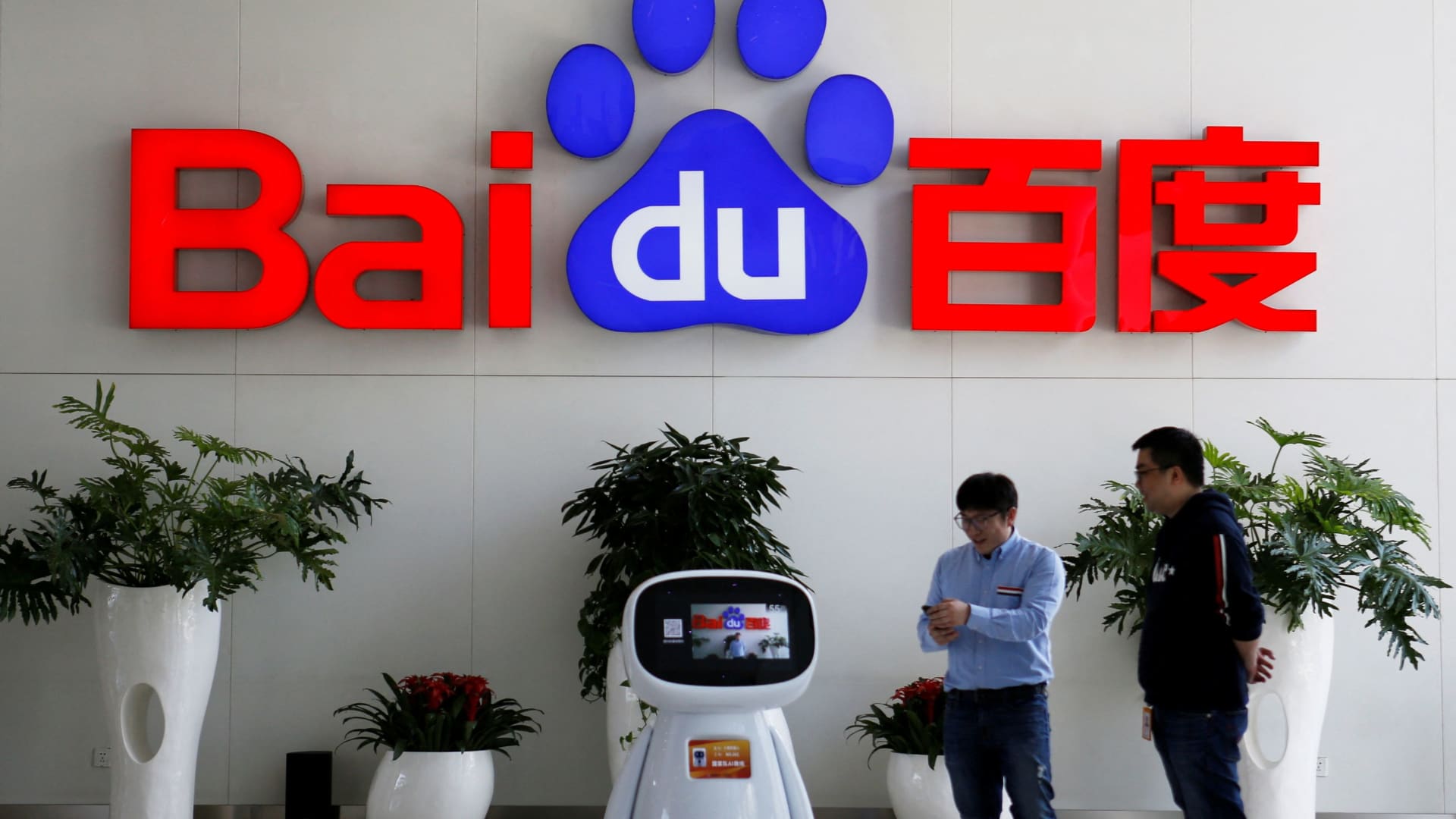

Men interact with a Baidu AI robot near the company logo at its headquarters in Beijing, China April 23, 2021.
Florence Lo | Reuters
SHENZHEN — Baidu CEO Robin Li said Tuesday the company’s ChatGPT-like Ernie bot has exceeded 200 million users.
He added the company would hold another round of its AI development competition, and offer a prize of 50 million yuan ($7 million).
Li, who is also co-founder and chairman of Baidu, was delivering an opening speech titled “Everyone is a Developer” at Baidu’s AI Create conference. About 5,000 people were in attendance at the event, according to the company.
Li demonstrated three development tools—AgentBuilder, AppBuilder, and ModelBuilder. The tools create and integrate AI-powered chatbots with Baidu web search, or allow users to create applications without any coding knowledge, according to the company.
Baidu released its ChatGPT-like chatbot Ernie bot more than a year ago, and received the green light from Beijing for public use in August.
The chatbot is based on Baidu’s large language model Ernie. Smartphone companies Samsung and Honor have integrated Ernie’s AI capabilities with certain mobile devices.
As of December, about 26,000 businesses were actively accessing Ernie’s capabilities on a monthly basis, according to Baidu. Ernie was handling more than 50 million queries every day, the company claimed.
“In 2024, we expect AI revenues contribution to become more meaningful, while our core business will remain resilient,” Li said during a late February earnings call, according to a FactSet transcript.
Baidu is set to release first-quarter results on May 16.
The global rush to develop AI capabilities, especially tapping the tech’s ability to generate content, has led to a surge in demand for Nvidia’s graphics processing units. Those chips are critical for providing the computing power needed to run and train AI large language models.
U.S. export controls, announced in the last two years, have restricted China’s access to such high-end semiconductors.
Li said in February that Baidu’s AI chip reserve “enables us to continue enhancing Ernie for the next one or two years.”
Earlier this month, Alibaba Chairman Joe Tsai said in an interview with Norges Bank Investment Management that he estimated that China was about two years behind the U.S. in terms of AI development.

Many analysts expect Chinese companies will be able to find an AI edge on the application front.
China’s AI market — consisting mostly of hardware, followed by software and services — is set to exceed $26 billion in size by 2026, up from just under $15 billion last year, according to Barclays estimates.
The analysts estimate China’s spending on “digital transformation” will grow by 19.2% between 2023 and 2026, outpacing a projected worldwide increase of 15.6%.
— CNBC’s Michael Bloom contributed to this report.





